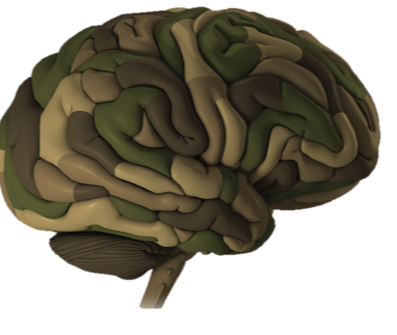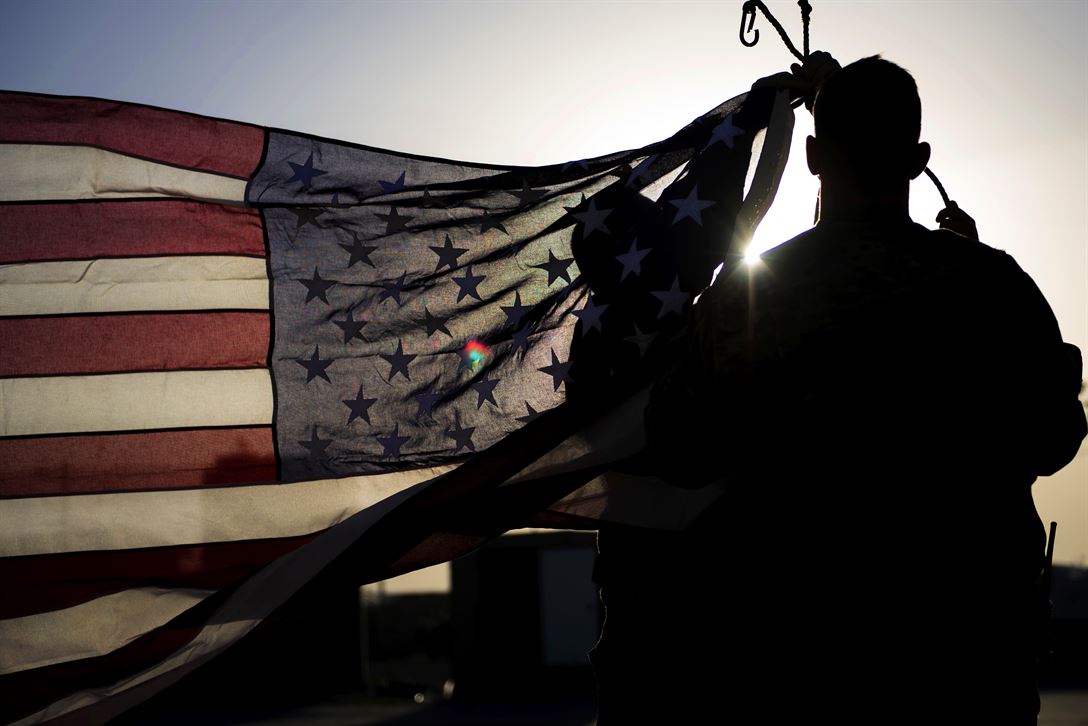
Military members await the start of the inaugural parade in Washington, D.C., Jan. 20, 2017. (Photo Credit: Sean Kimmons)
“The willingness with which our young people are likely to serve in any war, no matter how justified, shall be directly proportional to how they perceive veterans of earlier wars were treated and appreciated by our nation.”
This quote, often attributed to George Washington, is used when we hear of mistreatment of veterans and military service members. There is a lot of fist-shaking when we hear of another failure in the treatment of our veterans. There is an uproar when the unemployment numbers are up, or when we consider veteran suicides. That’s not particularly what this article is about, though, an attempt to shame the country into behaving better. That tactic didn’t work particularly well on me growing up. It probably doesn’t work that well on you either. It certainly doesn’t seem to make an impact on our communities.
The use of the quote to influence the nation to treat veterans better, or address their needs in a different way, does not reduce the truth in the quote. When we hear it, and roll our eyes, and think, “here we go again, another veteran is wanting special treatment,” we’re not hearing the words of the quote itself. There is truth in it: how a nation’s veterans are treated has a significant impact on whether or not people think serving in the military is an important and valuable endeavor.
In the five years I’ve been working in veteran support and advocacy, I’ve heard one question often enough to make it stand out. “What’s so special about veterans?” After getting beyond the initial response to the question…often a visceral one…I dig a little deeper, and try to explain. “There’s nothing particularly special about this veteran,” I say, “but veterans as a whole? There is absolutely a uniqueness about them.”
The deeper question, beyond just the “why should we care,” is actually a good one. Why should we focus on veterans exclusively when we’re trying to solve problems? The national suicide rate is through the roof; it’s not just veterans taking their own lives. The problem of homelessness and equitable housing opportunities aren’t just a veteran problem. Education, employment, stigma against seeking mental health treatment; all of these are national problems, not veteran problems.
So why give the attention to just veterans? Why pour money into programs that will reduce veteran suicide rather than suicide as a whole? That will impact veteran employment, rather than a comprehensive employment solution? Does’t this just widen the “gap” that us veterans are always talking about?
Maybe yes. And, at the same time, no…because the solutions that we apply to the veteran population can then be applied on a larger scale to the nation as a whole.
Veterans are a Diverse and Representative Sample of the Nation
Much of this analysis comes from the 2015 Demographics report from released by the Department of Defense. When I say that our military is representative of our nation, I don’t mean that everyone in the nation is represented in the military at the same level that they are in our society. The military continues to be overwhelmingly male. Males make up 84.5% of the total active duty military force in 2015. The number of females in the military in 2015, however, was over 200,000. That’s not an insignificant number. The ethnic diversity of the military is comparable to the ethnic diversity of the nation as well. 40% of the total military force consists of racial or ethnic minorities; in 2015, 44% of the nation as a whole were racial and ethnic minorities, according to a Pew Research analysis of the report’s data.
All that says this: veterans represent the country. They represent a small portion of our country, but they come from every state in the nation. They come from all walks of life; some are more represented than others, just like some geographic areas are more represented. As any veteran will tell you, however, you quickly adapt to military culture on top of anything else when you enter into the military. The diversity of the military, and by extension the diversity of the veteran population, means that what works with veterans could work with everyone else.
Solutions Developed for Veterans Can Be Applied to All Populations
When you want to solve a big problem, you have to start small. When products come to market, they are tested in small, diverse areas. Research studies rely on representative samples, and if the veteran population is a microcosm of the nation, then they are an identifiable population that can be considered representative. A colleague, reflecting on the “problem” of veterans in higher education, identified that it’s not a question of adapting to veteran students; it’s about adapting to nontraditional students. Over 75% of college students did not start their college experience directly after high school, according to a recent article discussing the need for colleges and universities to consider nontraditional students in the development of their programs. What can be more nontraditional than a 28 year old (or 42 year old) veteran working their way from an Associate’s Degree to a Master’s Degree?
The same can be applied to employment. The veteran population, and by extension, their families, are highly mobile and diverse. Not only is unemployment a challenge for the veteran population, so is underemployment: the situation where an individual’s job is not taking full advantage of their skills and experience. This, too, can be applied to the nation as a whole: college graduates who start out underemployed are likely to stay that way, according to another recent research study. Of course, any job is better than no job, and getting a job is easier if you have a job, but chronic and sustained underemployment is a challenge in the veteran community. If we can solve it there, we can apply that solution to other areas.
And so on, and so on. Mental health stigma? Absolutely, going strong in the veteran community. If we can get veterans to change the way they think and talk about mental health, then we can apply those same techniques to the nation as a whole. Veteran homelessness solutions can be applied to homeless populations overall.
Strengthening Our Former Service Members Strengthens Our Nation
And yes, finally, back to the quote above. Taking care of our nation’s veterans is very much a national security issue. I’ve written about this before, but in his book Tribe, Sebastian Junger writes, “Humans are so strongly wired to help one another – and enjoy such enormous social benefits from doing so – that people regularly risk their lives for complete strangers.” What happens when that strong wiring conflicts with an equal desire for self-preservation? When there are no longer social benefits, but actual social detriments to helping others? We start to get a nation of the served rather than the serving.
And that, my friends, is a truly frightening future.

The Head Space and Timing Blog is supported by the Colorado Veterans Health and Wellness Agency, a 501(c)3 Nonprofit in Colorado Springs, Colorado. The goal of the CVHWA is to provide military culturally competent mental health counseling to veterans and their spouses, regardless of characterization of discharge, time of service, or era of service. Our vision is to assist veterans to identify and remove barriers to their mental, physical, emotional, and behavioral wellness. For questions or inquiries, contact us!


